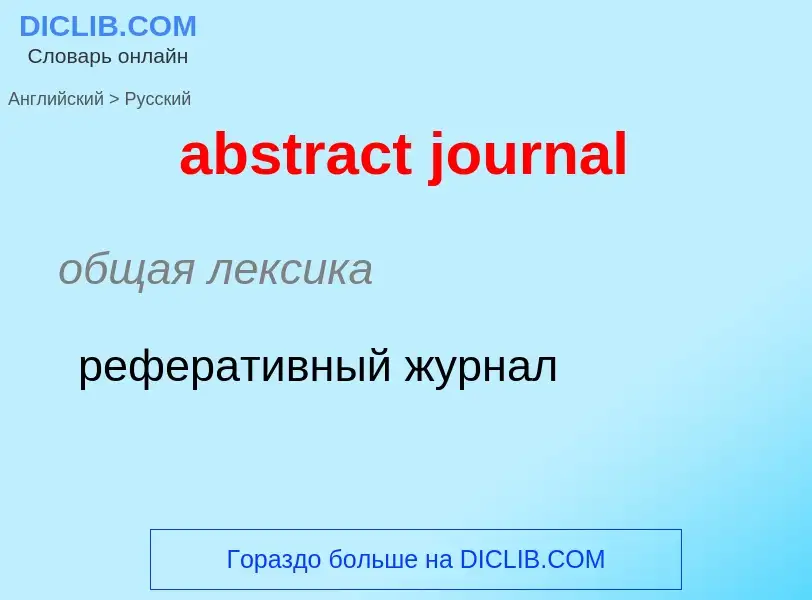Перевод и анализ слов искусственным интеллектом ChatGPT
На этой странице Вы можете получить подробный анализ слова или словосочетания, произведенный с помощью лучшей на сегодняшний день технологии искусственного интеллекта:
- как употребляется слово
- частота употребления
- используется оно чаще в устной или письменной речи
- варианты перевода слова
- примеры употребления (несколько фраз с переводом)
- этимология
abstract journal - перевод на русский
общая лексика
реферативный журнал
общая лексика
абстрактная машина
вычислительная машина, операции которой рассматриваются безотносительно их аппаратной или программной реализации
[ilek'trɔnikdʒə:n(ə)l]
общая лексика
«электронный» журнал (подготавливаемый на всех стадиях и печатаемый с помощью ЭВМ)
общая лексика
абстрактный [гипотетический] компьютер
машина Тьюринга
Смотрите также
общая лексика
абстрактный класс
в ООП - шаблон класса, содержащий объявления переменных и методов, но не содержащий код для создания новых экземпляров класса (instances). В Java - определяется как класс, содержащий один или несколько абстрактных методов (abstract method)
Википедия
In computer science, an abstract machine is a theoretical model that allows for a detailed and precise analysis of how a computer system functions. It is similar to a mathematical function in that it receives inputs and produces outputs based on predefined rules. Abstract machines vary from literal machines in that they are expected to perform correctly and independently of hardware. Abstract machines are "machines" because they allow step-by-step execution of programmes; they are "abstract" because they ignore many aspects of actual (hardware) machines. A typical abstract machine consists of a definition in terms of input, output, and the set of allowable operations used to turn the former into the latter. They can be used for purely theoretical reasons as well as models for real-world computer systems. In the theory of computation, abstract machines are often used in thought experiments regarding computability or to analyse the complexity of algorithms. This use of abstract machines is fundamental to the field of computational complexity theory, such as finite state machines, Mealy machines, push-down automata, and Turing machines.

![A run of a [[Turing machine]]. A run of a [[Turing machine]].](https://commons.wikimedia.org/wiki/Special:FilePath/2-state 3-symbol Turing Machine.png?width=200)
![Pictorial representation of a [[Krivine machine]]. Pictorial representation of a [[Krivine machine]].](https://commons.wikimedia.org/wiki/Special:FilePath/Machine de Krivine.jpg?width=200)

